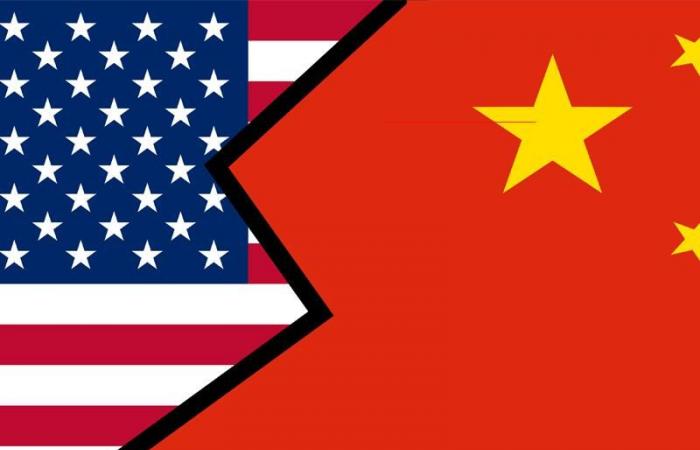The Chinese government reacts without delay to Washington’s new restrictions targeting the Chinese semiconductor sector.
China announced restrictions on Tuesday on exports of components essential to the manufacturing of electronic chips to the United States, after new restrictions from Washington targeting the Chinese semiconductor sector.
Gallium, germanium, antimony and other materials likely to be used in dual technologies – that is to say used for both civil and military purposes – are affected by these restrictions, indicates in a press release from the Chinese Ministry of Commerce, citing “national security” issues.
Materials covered by the new Chinese rules must now obtain a license before being exported to the United States, while exports intended “for military uses” are strictly prohibited.
“Any organization or individual, in any country or region, violating the regulations will be held accountable,” the ministry warns.
Technological standoff
This announcement follows a third wave of restrictions, announced Monday by Washington, on sales to China of semiconductors and equipment used in the manufacture of precious chips.
The objective is to “hinder China’s ability to acquire and produce the technologies necessary for its military modernization,” the US Department of Commerce said in a press release.
China strongly condemned this announcement, saying that the United States “undermines normal trade and economic exchanges”.
“In recent years,” the United States has “politicized trade and technology issues,” “imposed unjustified restrictions on exports from certain countries to China” and “sanctioned several Chinese companies,” the Chinese Ministry of Defense said on Tuesday. Commerce in another press release.
Critical materials
China represents 94% of global production of gallium, a strategic metal used in solar panels, radars and transistors, according to a European Union report published this year.
It is also the source of 83% of germanium, a metalloid used in the manufacture of optical fiber or infrared receivers.
China had already tightened controls on exports of these materials to the United States last year, requiring exporters to provide information on end users.
The new rules now prohibit any export without obtaining a prior license.
These materials play a “critical role in the advanced technology industry”, and “many intermediate manufacturers had started to stock (them)”, underlined to AFP Brady Wang, associate director at the consulting firm Couterpoint.
Graphite, one of the essential components in the manufacture of batteries for electric vehicles, is also the subject of increased attention from the Chinese authorities.
The sale of graphite-based products “used for dual purposes” to the United States will be subject to “stricter” controls regarding its end use, the Chinese Ministry of Commerce reported on Tuesday.
These new rules are “clearly a retaliatory measure against the United States,” Dylan Loh, assistant professor at Nanyang Technological University in Singapore, told AFP.
These “reciprocal restrictions could lead to supply chain disruptions and higher prices,” Chong Ja Ian, associate professor of political science at the National University of Singapore, told AFP.
The Internet Society of China thus in a press release “called on domestic companies to (…) be careful when purchasing American chips, to seek to develop their cooperation with chip manufacturers from other countries (. ..), and to actively use chips produced and manufactured in China by domestic and foreign companies.
The Chinese Association of Automobile Manufacturers accused Washington of having “arbitrarily amended the control rules, seriously affecting the stability of the supply of American chips.”
“American automobile chips are no longer reliable and safe,” the association even added.
John Neuffer, president of the American Semiconductor Manufacturers Association, said such claims about reliability and safety were “simply inaccurate.” He added that the association was assessing the impact of the latest controls carried out by Washington and Beijing, urging “both governments to avoid further escalation.”





